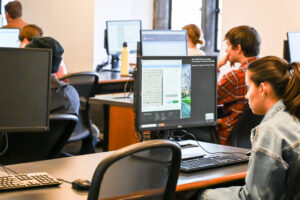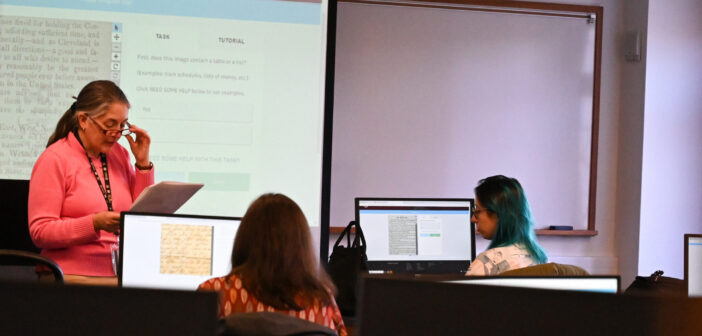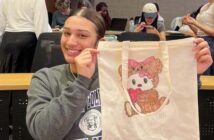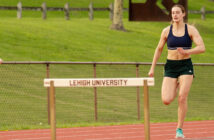On a quiet Tuesday afternoon, the sounds of “Happy Birthday” could be heard floating down the third floor hallway of Linderman Library. Students, faculty and staff gathered to squint at centuries-old manuscripts and eat cake in honor of Frederick Douglass’ birthday.
Hosted by the Lehigh English department and the Library and Technology Services on Feb. 14, Douglass Day is an international transcribe-a-thon that relies on volunteers to create digital resources of 19th century materials written by influential Black men and women.
The event features a different influential person each year — the focus this year was Mary Ann Shadd Cary. According to the event’s website, Shadd Cary was one of the first Black women to edit a newspaper, serve as a Civil War recruiter and attend law school.
According to the website, Douglass Day has been celebrated since the turn of the 20th century, and it is why Black History Month is held in February. The holiday was revived by a group of graduate students at the University of Delaware in 2017, who had previously created The Colored Conventions Project to digitize and transcribe seven decades worth of 19th century Black American political activism.
English department chair Edward Whitley said this event has been discussed for years, and the department’s course listing for this year finally aligns with the organization’s mission of promoting collective actions and a day of love for Black history, as stated on their website.
“It seemed like it was a good time to do something that we’ve been wanting to do for a while,” Whitley said.
He worked with Lehigh humanities librarian Heather Simoneau to sort out the logistics of the day.
Simoneau said this year’s event was the largest Douglass Day ever, with nearly 7,000 organizations participating across North America, Africa and China. The organizations worked over the course of a week to transcribe over 1,100 pages from Shadd Cary’s archive.
By having multiple people view each work, associate English professor Suzanne Edwards said the Douglass Day organization is able to build a consensus on the exact contents of the historical documents.
“Multiple people are able to look at it from different perspectives with different experiences and different skills, which is crucial for getting at the possibilities of these materials,” Edwards said.

The Lehigh English department and Library and Technology Services hosts Douglass Day in Linderman Library on Feb. 14. Douglass Day is an international transcribe-a-thon that relies on volunteers to help create new digital resources of 19th century materials written by influential Black men and women. (Zijin Xia/B&W Staff)
Simoneau said the event is a meaningful way to transcribe materials that might not have been prioritized because of the expenses involved in developing and maintaining archives.
She said efforts like Douglass Day that transcribe materials are important because they produce digital archives that researchers can use to make discoveries.
“The Colored Conventions Project has been able to crowdsource the transcription in a way that is truly admirable, involving libraries at universities, historically Black churches and different community centers,” Whitley said.
Douglass Day helps to spread Black history and make the information more accessible.
Without these digital copies, researchers may not even know this information exists, Edwards said, who has spent the past several years organizing the archive of 20th century writer Gloria Naylor. Edwards said there is often a lack of attention given to the archives related to Black history and Black women’s histories.
“Libraries and archives affiliated with predominantly white institutions haven’t historically been as active in recognizing the historical importance of collections having to do with Black women,” Edwards said.
She said this problem is multi-layered, and it is further amplified by the issue of hidden archives. An archive is hidden when it is collected as part of another person’s collection or as a subseries related to a larger history.
Often a woman’s work is part of their spouse’s collection and not separated to stand on her own, Edwards said, since personal perspective on the contents of the documents influences its archival categorization.
Simoneau said the transcription of Shadd Cary’s writings and documents will be published online in the weeks following the event.
“The idea is that (the information in the documents) is open and accessible to the public, to researchers, to teachers, to students,” Whitley said.
Simoneau said she hopes to continue to participate in Douglass Day in future years with additional campus partnerships.






Comment policy
Comments posted to The Brown and White website are reviewed by a moderator before being approved. Incendiary speech or harassing language, including comments targeted at individuals, may be deemed unacceptable and not published. Spam and other soliciting will also be declined.
The Brown and White also reserves the right to not publish entirely anonymous comments.